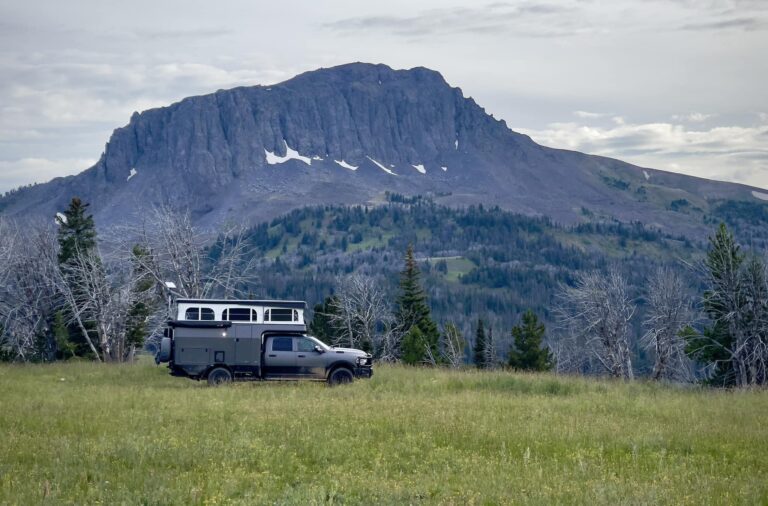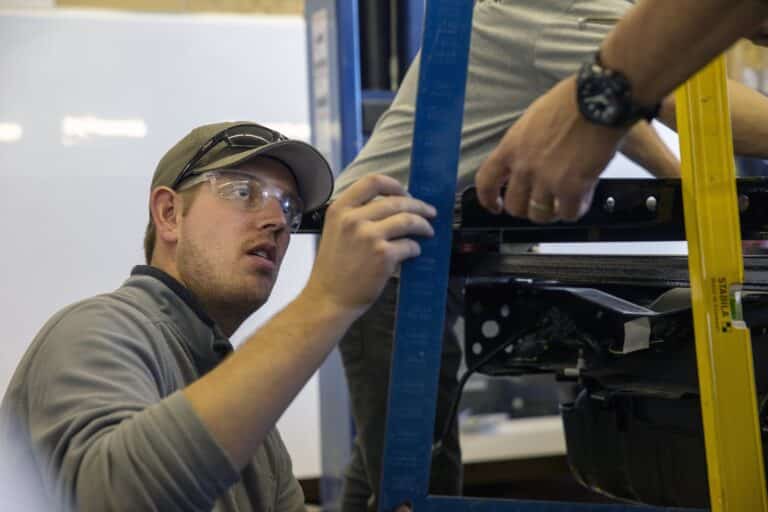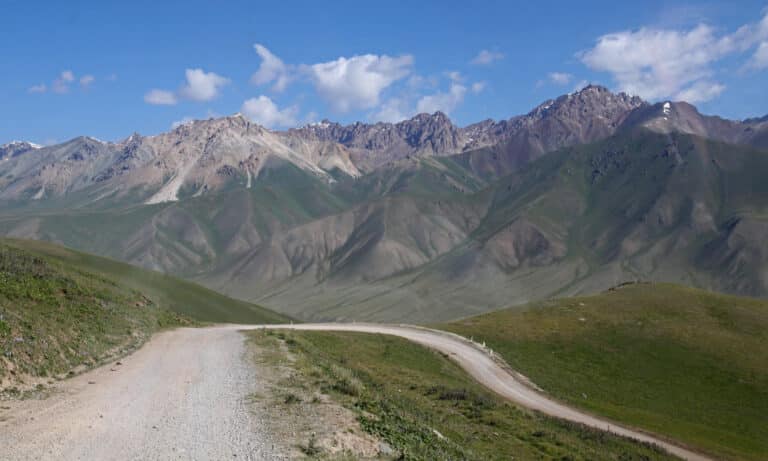Preparing for an overland adventure means creating plans for taking care of our
vehicles and equipment. This is often the focus of discussions, and it’s easy to forget to
plan for the most important element in your vehicle: you. Life on the road is joyful, but it
can also be tiring and challenging. After all, if it were always easy, it wouldn’t feel like an
adventure. Here are a few ways to ensure you’re taking care of yourself as well as you
take care of your EarthCruiser:
1. Create good habits and stick to them
Habits like going to bed and getting up at the same time every day, and keeping
hydrated are key to maintaining good health at home. They become critical on the road
where the constants of driving and encountering novel situations can wear you down.
Limit screen time before bed and ensure you’re taking enough water throughout the
day.
Even mild dehydration can result in low blood pressure, a rapid heartbeat, confusion,
and fever. If allowed to worsen, it can lead to seizures, swelling of the brain, kidney
failure, shock, coma, and even death. Dry environments, high altitude, and prolonged
exposure to the sun are all reasons to up your water intake. Unfortunately, if you spend
enough time on the road, it’s not a matter of if you’ll encounter a bought of Traveler’s
Diarrhea, but when. If you become sick, remember to increase your intake of fluids and
consider packing rehydration salts in your medical kit. You can also make your own by
mixing one quart of water with ¾ teaspoon table salt and 2 tablespoons of sugar.
2. Research your destination and consult your travel doctor
Part of researching your next international adventure should include a visit to your travel
clinic, the CDC website, and the consulate for the countries you will visit. Your travel
doctor will help you assess which vaccinations and medications are necessary for your
journey. The CDC provides detailed information on the health risks you may encounter
and how to mitigate risk. The consulate will tell you if proof of vaccination is required for
entry.
If COVID has taught us anything, it’s that vaccine and health requirements are a moving
target. Research current restrictions and revisit them before traveling and while you’re
on the road. Many countries will ask for vaccination proof upon entry, and not just for
COVID. Vaccination against Yellow Fever is a common requirement in Africa and South
America. Failing to provide this document at the border can mean denial of entry or an
offer of an on-the-spot injection, one which might not meet your sanitation standards..
If you are prescribed anti-malarial tablets, make sure you understand possible side
effects like sun sensitivity, vivid dreams, or interaction with other medications.
3. Practice good hygiene
One of the best things about traveling is sampling new foods. It’s also one of the most
common ways we can get sick. Use caution when eating foods that aren’t cooked, ice
and drinks made with untreated water, and street food that isn’t freshly cooked. Wash
your hands frequently.
If you prepare your own food, staying away from utensils and dishes made from porous
materials like plastics can help guard against bacteria. Damp dish towels and sponges
can harbor bacteria and should be frequently washed or replaced.
EarthCruisers come standard with a drinking water purifier system that guards against
bacteria, cysts, and viruses. Ensure water filtered through this system is your water
source for drinking, cooking, and making ice or use bottled water.
4. Take care of your mental health
Overlanding means constant stimulation from novel situations. It means long and
challenging drive days, unfamiliar foods, and time away from friends and family. It’s not
uncommon to feel bouts of fatigue and loneliness on the road.
Consider scheduling planned rest days into your itinerary and stick to them. Try not to
be tempted to use them to cram in yet another challenging day, but instead use them to
rest, relax, catch up with loved ones back home, journal, and reflect.
Plan mini-breaks throughout your day. A short stop alongside the road for a cup of tea
can do wonders to help break up an otherwise long drive. Power naps, short walks, and
stretching can help you stay alert while driving and renew your energy.
5. Be prepared for when something goes wrong
Accidents happen. Even with the most careful planning and utmost caution, things can
still go wrong. Consider keeping an emergency contact sheet in your vehicle detailing
your medical insurance details, next of kin, blood type, and any medical conditions or
allergies. Translating this document into the local language could save precious minutes
in the event of an emergency.
When traveling through places with limited medical facilities, I carry a medical kit that
includes the items I’d want to be treated with. When the emergency technician arrived to
treat a minor laceration on a client of mine in Central Asia, they arrived with a rusting
toolbox with opened packages of sutures. Having your own set of syringes, sutures, and
even an IV kit means you can be confident that you’re treated with sterile equipment.
Most health issues on the road are minor and avoidable. With a bit of planning and
preparation, you can set yourself up to stay happy and healthy. Overlanding opens up
the world for exploration and adventure. Practicing good health habits on the road
ensures you are at your best to enjoy whatever comes your way.










